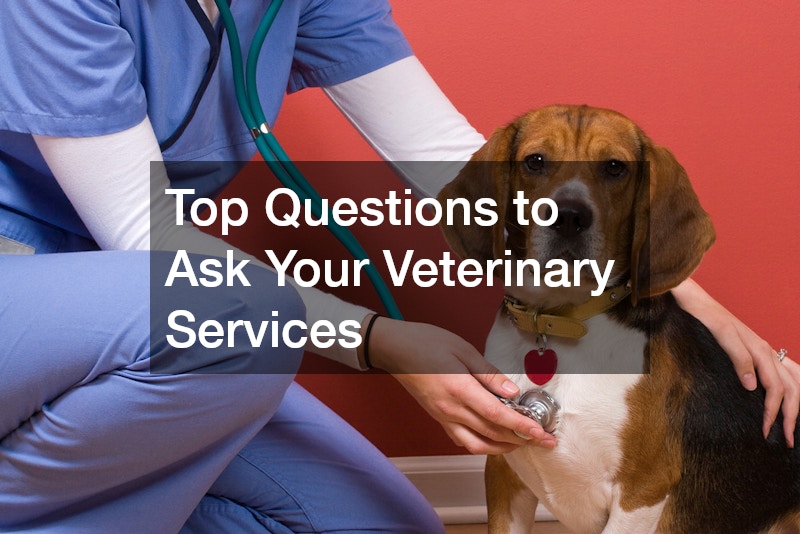
Discovering the right questions to ask your veterinary services is essential for the health and well-being of your pets. This article outlines the top inquiries made by pet owners to ensure they receive comprehensive and attentive care for their furry friends. By understanding these key aspects, you can make well-informed decisions regarding your pet's medical needs.
Video Source
Core vaccinations are vital for every pet, providing protection against the most common and dangerous diseases. These vaccines typically include rabies, distemper, and parvovirus, which are known to have significant health impacts on pets. Ensuring your pet receives these core vaccinations at the appropriate age is crucial for long-term health maintenance.
Preventing disease through vaccination not only safeguards your pet’s health but also contributes to public health efforts by reducing the spread of zoonotic diseases. Receiving these vaccines as part of routine care helps mitigate the risk of outbreaks that could affect both animal and human populations. Your veterinarian is the best resource to determine the required vaccination schedule for your pet.
It's important to note that the vaccination may vary based on geographical location and prevalent local diseases. For instance, in areas prone to Lyme disease, the Lyme vaccine might be considered core. Regular communication with your veterinarian will ensure that your pet is up-to-date on necessary vaccinations.
Non-core vaccinations are additional vaccines that may be recommended depending on your pet’s lifestyle, travel habits, and environmental exposure. These include vaccines for diseases like Bordetella (kennel cough), Lyme disease, and influenza. Deciding on non-core vaccinations should be a personalized decision made after consulting with a veterinarian who understands your pet’s specific needs and risks.
For pets that spend time outdoors or in communal areas like dog parks, non-core vaccinations can play a vital role in disease prevention. Understanding your pet’s environment is crucial in deciding whether these additional immunizations are necessary. Discussing your pet’s daily activities with your vet helps tailor the vaccination plan to your pet’s unique situation.
Additionally, pets that travel frequently or are exposed to other animals, in settings such as boarding facilities and grooming salons, might benefit from non-core vaccinations. Some of these vaccines are administered based on seasonal exposure risks. Regular assessments by your veterinarian can identify the necessity for these vaccines.
Maintaining an appropriate vaccination schedule is essential for ensuring long-term protection against infectious diseases. Puppies and kittens typically require a series of booster shots during their first year to build immunity effectively. After the initial series, maintaining updated vaccines as per vet recommendations helps sustain their protective effects.
Adult pets have different vaccination needs compared to young animals. Generally, booster shots are administered every one to three years based on the vaccine type and the pet’s health status. Moreover, certain breeds may have specific requirements, and scheduling regular vet visits ensures your pet remains protected.
As pets age, some vaccines may become less critical, while others remain essential. Discussing your pet’s lifestyle and health changes with your veterinarian can impact the recommended frequency of vaccinations. This open dialogue helps keep your pet’s vaccination plan aligned with their current needs.
Annual veterinary examinations are key to detecting potential health issues early and maintaining your pet’s overall health. These check-ups often include physical exams, blood tests, and other diagnostics to monitor health changes. Proactive annual care enables the detection of conditions before they escalate, ensuring timely interventions.
Regular veterinary visits foster a comprehensive understanding of your pet's wellness through all life stages. Keeping track of weight, diet, and behavior in conjunction with medical assessments offers a holistic picture of your pet's health. Additionally, these exams provide a platform for updating vaccinations, dental cleanings, and preventive treatments.
Moreover, engaging with your vet during annual visits about any changes in behavior or routines can uncover potential health issues. Addressing concerns early is fundamental for your pet's longevity and quality of life. Such preventive practices are crucial components of responsible pet ownership.
As pets advance through different life stages, their health needs and exam frequencies change. Puppies and kittens require frequent visits during their first year for vaccinations and development monitoring. These visits are crucial for identifying growth anomalies or congenital conditions early on.
Once mature, adult pets can typically thrive with annual check-ups, but middle-aged and senior pets often benefit from bi-annual exams. Specialized exams for older pets may include more thorough diagnostics like blood work and imaging to catch age-related issues. Specialized breeds may also require tailored assessments due to breed-specific predispositions.
Preventive care varies for each life stage, ensuring both preventative measures and treatments are age-appropriate. Senior pets, for instance, may require additional screenings for arthritis, thyroid issues, or cognitive decline. Working closely with a veterinarian accommodates these developmental changes effectively.
Asking the right questions empowers you as a pet owner to ensure the best possible care for your pets. Whether it’s understanding essential vaccinations, determining the frequency of check-ups, or selecting the ideal diet, staying informed is key. With guidance and expert advice from your veterinary service, you can nurture a healthy and happy life for your pet.
.